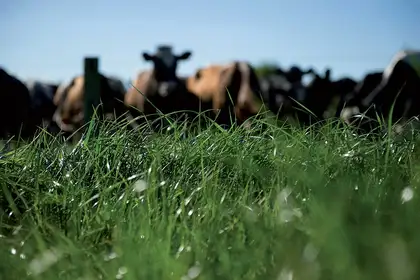
Best practice is always important.
Massey experts are urging best practice for farmers to prevent the future spread of disease, in light of an outbreak of disease due to Mycoplasma bovis on a large South Canterbury farm.
Dean of Massey University's Veterinary School, Associate Professor Jenny Weston says while the outbreak is being contained and investigated, it is important for all farmers to be thinking about biosecurity and what animals, people and vehicles coming onto their farms might be carrying.
“Nearly all farmers will buy in breeding bulls/rams, meaning they could also be bringing in infectious diseases like BVD [Bovine Viral Diarrhoea] and Johne's Disease, which are important to look out for, as well as drench-resistant parasites and antibiotic resistant pathogens.”
“There are a few things farmers can do to ensure the health and welfare of their livestock and that maintain the smooth running of their business,” Dr Weston says.
- Movements should be minimised and preferably minimise the number of sources of livestock. Record all movements (even between your own properties with multiple farms and grazing blocks) through the National Animal Identification and Tracing (NAIT) programme.
- Test all incoming animals for things that can be relatively easily tested for.
- Vaccinate and quarantine drench when animals come onto the farm. Quarantine and keep new animals isolated for at least 1-2 weeks.
Other things to consider include:
- Insist on cleanliness of people, vehicles and equipment coming onto your farm.
- Provide good washing up facilities e.g. for boots, aprons etc. for people coming onto or leaving your farm as many pathogens can be transmitted via blood or faeces.
- Ideally, look to coordinate grazing rotations with the neighbours so that your animals aren’t “over the fence” from the neighbour’s animals.
For more information on the outbreak and preventing the disease, visit the Ministry for Primary Industries website here.